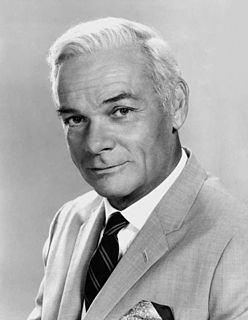A Quote by Jimmy O. Yang
I studied economics and thought I wanted to play with the stock market - my dad was a financial adviser - and I was going to go down that path. I was an intern at Smith Barney.
Related Quotes
Barney's Dad was really bad so Barney hatched a plan when his dad said "Eat your peas." Barney shouted no and ran Barney tricked his mean old dad and locked him in the cellar Barney's Mom never found out where he'd gone, Cause Barney didn't tell her. There his dad spent his life eating mice and gruel With every bite for fifty years he was sorry he'd been cruel
If you go back to Adam Smith, you find the idea that markets and market forces operate as an invisible hand. This is the traditional laissez-faire market idea. But today, when economics is increasingly defined as the science of incentive, it becomes clear that the use of incentives involves quite active intervention, either by an economist or a policy maker, in using financial inducements to motivate behavior. In fact, so much though that we now almost take for granted that incentives are central to the subject of economics.
My father was a person who always allowed me to do what I wanted but he told me you want to go to a stock market, first get yourself qualified. So, I qualified myself as a chartered accountant and my dad said what do you want to do? I said I want to go to the stock market. He asked what will you do? I said I invest.
Successful investors like stocks better when they’re going down. When you go to a department store or a supermarket, you like to buy merchandise on sale, but it doesn’t work that way in the stock market. In the stock market, people panic when stocks are going down, so they like them less when they should like them more. When prices go down, you shouldn’t panic, but it’s hard to control your emotions when you’re overextended, when you see your net worth drop in half and you worry that you won’t have enough money to pay for your kids’ college.
The underlying strategy of the Fed is to tell people, "Do you want your money to lose value in the bank, or do you want to put it in the stock market?" They're trying to push money into the stock market, into hedge funds, to temporarily bid up prices. Then, all of a sudden, the Fed can raise interest rates, let the stock market prices collapse and the people will lose even more in the stock market than they would have by the negative interest rates in the bank. So it's a pro-Wall Street financial engineering gimmick.
People thought they were going to make a lot of money. And then at one point, it got too hot, and the government wanted to knock it down. Trying to get it up and then knock it down, both were a mistake. And part of the reason, some people think, is that they wanted to equitize some of their companies. A healthy stock market helps equitize companies and reduce the country's debt burden.
The other dynamic keeping the stock market up - both for technology stocks and others - is that companies are using a lot of their income for stock buybacks and to pay out higher dividends, not make new investment,. So to the extent that companies use financial engineering rather than industrial engineering to increase the price of their stock you're going to have a bubble. But it's not considered a bubble, because the government is behind it, and it hasn't burst yet.



































